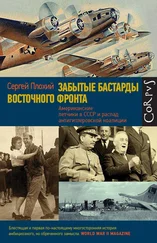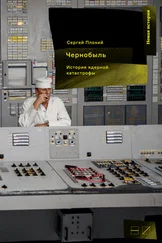A tall man with a long face, a big nose, and a shaved, egg-shaped head, Aleksandrov had turned eighty-three earlier that month. He was significantly older than most members of the Politburo, and older than all three of the general secretaries who had passed away in the previous three and a half years. But no one dared to suggest that Aleksandrov was not fit to do his job or that “stagnation” had become apparent either in the Institute of Nuclear Energy, which he headed, or the Academy of Sciences, over which he presided. He was fit, vigorous, and full of ideas. As one of the founders of the Soviet nuclear program, he also enjoyed considerable respect in the party, in industry, and in scientific institutions. When it came to scientific and technological progress, Gorbachev’s “wonder weapon” for overcoming Soviet economic backwardness, everyone looked to Aleksandrov and his scientists to show the way. They were the ones who were expected to deliver the miracle. 14
Aleksandrov began with a reference to Lenin and the attention he had allegedly paid to the development of the Soviet sciences. But his main historical emphasis was on the development of the Soviet nuclear program, led by Igor Kurchatov, the founder of the institute that Aleksandrov now headed. Under Kurchatov’s leadership, said Aleksandrov, “the first atomic bombs were built, and then, earlier than in the USA, hydrogen bombs as well. The security of the Soviet Union was guaranteed.” Aleksandrov neglected to mention the role played in the creation of the first Soviet nuclear bomb by atomic spies who had reported to Moscow on the progress of the American Manhattan Project. He particularly stressed the peaceful uses of nuclear energy: “In 1954, soon after the creation of atomic weapons, the first atomic energy station in the world was established in the USSR. I wish to applaud its creators.” The audience responded with loud applause.
Aleksandrov recalled historical milestones not only to praise his predecessor and, indirectly, his own role in the development of the Soviet nuclear program, but also to remind his listeners of dangers emanating from the West. He argued against buying technologies and equipment abroad, reasoning that contracts could be canceled at any moment for political reasons. He wanted to invest in scientific development at home. The automation of a small production unit at his institute offered an apposite example. “We announced to the whole ministry: comrades, if you order parts, please order them from us,” said Aleksandrov, eliciting a new wave of applause. 15
Gorbachev, who had previously interrupted Aleksandrov’s speech with supporting and reassuring remarks of his own, now fell silent. He did not ask what ministry Aleksandrov had in mind. He knew the answer himself. Aleksandrov was referring to a top-secret ministry with the awkward name of “Ministry of Medium Machine Building.” Its minister, Yefim Slavsky, was sitting in the presidium behind Aleksandrov. A giant of a man, five years older than Aleksandrov and bigger and taller than he, Slavsky was one of the most powerful ministers the Soviet government had ever had. A pioneer of the Soviet nuclear program who had begun working on it with Kurchatov in the late 1940s, Slavsky was now in his twenty-eighth year of running the Ministry of Medium Machine Building, a huge government enterprise responsible for the production of nuclear bombs, and, later, of nuclear power for peaceful purposes. Soviet leaders came and went, but Slavsky remained. When it came to political power and resources, he virtually owned Aleksandrov’s Institute of Nuclear Energy and, through him, the Academy of Sciences. Aleksandrov’s deputies were constantly knocking on Slavsky’s door, asking him to fund their projects. He assented if he was so inclined. 16
Slavsky and Aleksandrov were longtime allies. Both came from Ukraine, where Aleksandrov, the son of a prominent judge in the Kyiv region, had fought in the ranks of the White Army against the Bolsheviks after the 1917 revolution, while Slavsky, the son of a Cossack, had joined the Red Cavalry. The fact that they had fought on opposite sides did not prevent them from forging a lasting alliance. The story was told that in the early 1960s, Nikita Khrushchev had summoned Slavsky and Aleksandrov to his office and, switching to Ukrainian, demanded that they catch up with America in the construction of nuclear power plants. Inspiration for how to produce a new nuclear reactor presumably came from the well-known Soviet comedian Arkadii Raikin, who, in a standup act on television, joked that it was a shame to allow a ballerina to twirl without producing any energy for the socialist economy, so a rotor should be attached to her body. Slavsky and Aleksandrov, allegedly after seeing the skit, decided to take a nuclear reactor designed for the production of weapons-grade plutonium and attach an enormous turbine and rotor to it in order to use the reactor’s excess heat to produce electricity. 17
Whatever the actual source of their inspiration, a new reactor, called the RBMK (High Power Channel Reactor), was born out of cooperation between Slavsky’s ministry and Aleksandrov’s institute. Its chief designer was Nikolai Dollezhal, another native of Ukraine who had made it big in the Soviet nuclear industry and served as the director of the Research and Development Institute of Power Engineering. He had designed the reactor that had produced plutonium for the first Soviet nuclear bomb and had then worked on the reactors powering Soviet submarines. Aleksandrov, who also worked on nuclear submarines, served as chief scientific consultant for the RBMK design. The first RBMK units were tested and run by Slavsky’s ministry. Aleksandrov kept telling everyone who would listen that his reactors were safe and sound. They were like samovars, he said, and could not possibly explode. Rumor had it that he went so far as to declare that his reactors were safe enough to be installed on Red Square. 18
That never happened, but after the new reactor was tested, at a plant in Slavsky’s ministry, it was deemed safe enough to be transferred to the Ministry of Energy and Electrification, which had no experience with nuclear energy. Few doubted the positive effect that the fusion of science and technology would have on the country as a result of the military-industrial complex’s stewardship of the nuclear industry. Aleksandrov’s RBMK reactors were placed all over the European part of the Soviet Union, producing much-needed clean energy for the country. With a capacity of 1 million megawatts of electrical energy per unit, they were more powerful than their Soviet competitors, the VVERs (or Water-Water Energy Reactors, meaning water-cooled and water-moderated), which had been produced starting in the early 1970s. By 1982, more than half the electrical power produced in Soviet nuclear plants came from Aleksandrov’s reactors. Three of them were built at the nuclear power plant near Leningrad, two at the Kursk plant, one in Smolensk, and three in Chernobyl. The fourth RBMK unit was launched there by Briukhanov in 1983. 19
Before coming to Moscow, Briukhanov had been under great pressure to help complete the construction of the fifth unit, which was 70 percent ready. The pressure increased in January 1986, when the local party committee officially reprimanded Briukhanov’s deputy for failing to meet construction deadlines. The news got into the local media, and Briukhanov knew that if the situation did not improve, he would be next in line for a party reprimand. In his report to the congress, Soviet Prime Minister Nikolai Ryzhkov warned his underlings against any more delays in launching new reactor units, announcing, “Considering the strain on the country’s fuel balance and the growing role of atomic energy, such disruptions are inadmissible in the future.” The appetite for nuclear energy not only at the top but also at the bottom of the party pyramid was enormous. Briukhanov could not help noticing that the regional leaders were eager to jump on the nuclear bandwagon, asking for investments of nuclear rubles in their regions. A party secretary from the Gorky (Nizhnii Novgorod) region on the Volga River argued in his address to the congress for the construction of a nuclear power plant in his district. A delegate from Siberia attacked Moscow officials for killing plans to build a new nuclear power station in his region. Everyone wanted to go nuclear. 20
Читать дальше
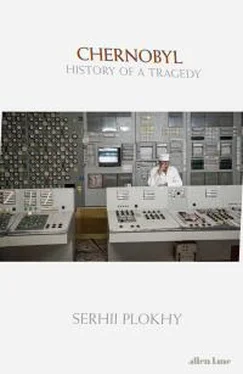

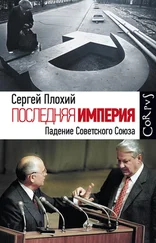



![Сергей Плохий - Чернобыль - История ядерной катастрофы [litres]](/books/385171/sergej-plohij-chernobyl-istoriya-yadernoj-katastrof-thumb.webp)
![Сергей Плохий - Человек, стрелявший ядом [История одного шпиона времен холодной войны]](/books/405163/sergej-plohij-chelovek-strelyavshij-yadom-istoriya-od-thumb.webp)

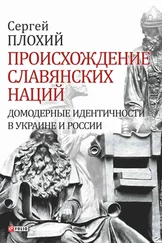
![Сергей Плохий - Потерянное царство. Поход за имперским идеалом и сотворение русской нации [c 1470 года до наших дней]](/books/433093/sergej-plohij-poteryannoe-carstvo-pohod-za-impersk-thumb.webp)
